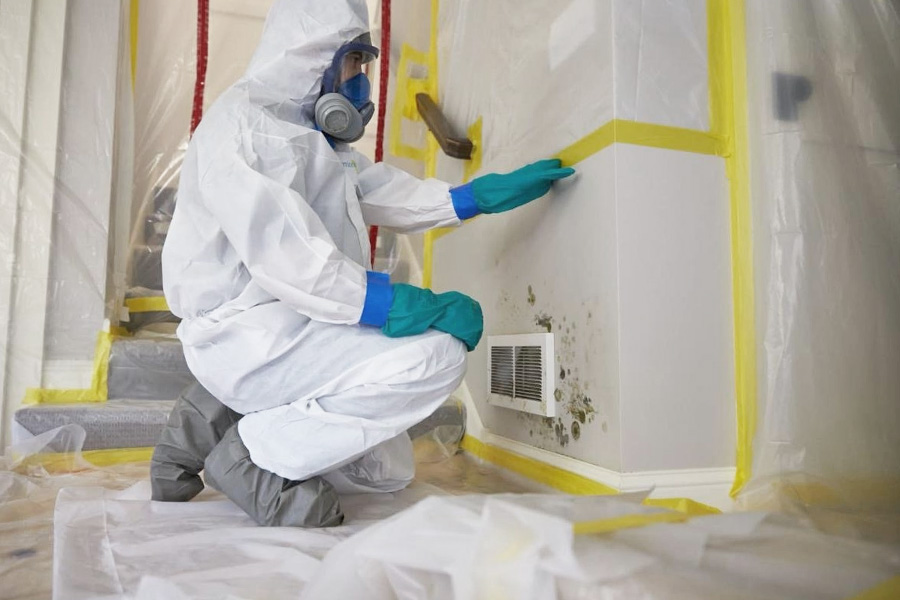
Mold Spores and Cognitive Health: Understanding the Impact and Prevention
Mold spores can have a significant impact on cognitive health, leading to various cognitive symptoms and impairments. In this article, we will explore the relationship between mold spores and cognitive function, understand the effects on memory, attention, and decision-making, and discuss preventive strategies and management techniques. Let’s delve into the world of mold spores and their influence on cognitive health.
Understanding Mold Spores
Mold spores are tiny reproductive units produced by molds, which are types of fungi. These spores are lightweight and easily become airborne, allowing them to spread and colonize new areas. Common sources of mold spores include damp environments, such as basements, bathrooms, and areas with water damage. Understanding the characteristics and sources of mold spores is crucial in comprehending their potential impact on cognitive health.
The link between Mold Spores and Cognitive Health
Research studies have explored the association between mold exposure and cognitive function, revealing intriguing findings. Research has linked exposure to mold spores with cognitive symptoms such as memory problems, difficulty concentrating, and impaired decision-making abilities. Although the exact mechanisms remain unclear, experts believe that mold spores can induce brain inflammation and oxidative stress, resulting in cognitive impairments.
Effects of Mold Spores on Cognitive Function
Memory and Learning Abilities: One of the key areas affected by mold spores is memory. Individuals exposed to mold spores may experience difficulties in forming new memories and recalling information. Additionally, learning abilities can be compromised, making it challenging to acquire new knowledge and skills.
Attention and Concentration: Mold spores can also disrupt attention and concentration. Those exposed may struggle to stay focused, experience mental fog, and have a reduced ability to concentrate on tasks. These attentional impairments can significantly impact daily activities and productivity.
Mold spores can adversely affect executive functions and decision-making, which are responsible for higher-order cognitive processes such as planning, problem-solving, and decision-making.Individuals may find it harder to make sound judgments, exhibit poor problem-solving skills, and experience difficulties in organizing and executing tasks.
Vulnerable Populations
Certain populations are more susceptible to the cognitive effects of mold spores. Children, the elderly, and individuals with pre-existing respiratory conditions or weakened immune systems are particularly vulnerable. Age-related factors and compromised health status can heighten the risk of experiencing cognitive symptoms in the presence of mold spores. Extra caution should be taken to protect the cognitive health of these individuals.
Assessing Mold Exposure and Cognitive Health
Diagnosing mold-related cognitive impairment requires a comprehensive approach. Neuropsychological testing can help evaluate cognitive functions and identify specific areas of impairment. Additionally, biomarkers and imaging techniques may provide valuable insights into the physiological changes occurring in the brain due to mold exposure.
Prevention and Mitigation Strategies
Preventing mold growth and reducing exposure to mold spores is essential for maintaining cognitive health. Here are some strategies to consider:
- Maintain a Mold-Free Environment: Regularly inspect and address any signs of water damage or moisture issues in your home or workplace. Repair leaks promptly, ensure proper ventilation, and use dehumidifiers if necessary.
- Proper Ventilation and Air Filtration: Good ventilation helps reduce moisture and prevent the accumulation of mold spores. Use exhaust fans in bathrooms and kitchens, and consider using air purifiers with HEPA filters to remove airborne spores.
- Control Humidity Levels: Keep indoor humidity levels between 30% and 50% to discourage mold growth. Use air conditioners or dehumidifiers in humid climates or during damp seasons.
- Timely Mold Remediation: If mold is present, it is crucial to address the issue promptly. Hire professionals to assess and remediate the mold-infested areas to prevent further spread and minimize health risks.
Managing Mold-Related Cognitive Issues
If you suspect mold exposure has affected your cognitive health, it is important to seek medical attention and professional advice. Physicians specializing in environmental medicine or neurology can evaluate your symptoms, conduct appropriate tests, and recommend suitable treatment options. Additionally, lifestyle adjustments, such as reducing stress, getting regular exercise, and maintaining a healthy diet, can support cognitive well-being.
Promoting Cognitive Health in Mold-Prone Environments
In mold-prone environments, taking proactive steps to promote cognitive health becomes paramount. Engaging in brain-healthy activities like puzzles, reading, and social interactions can help keep the mind active. Consuming a nutritious diet rich in antioxidants, omega-3 fatty acids, and vitamins can also support cognitive function. Stress management techniques, such as meditation or deep breathing exercises, can help reduce the negative impact of stress on cognitive health.
The Importance of Awareness and Education
Raising awareness about the risks of mold exposure on cognitive health is crucial for public health. Moreover, educating individuals about preventive measures, early detection, and the potential cognitive symptoms associated with mold spores is essential. By fostering a collective understanding, we can effectively promote healthier indoor environments and thereby safeguard cognitive well-being.
Conclusion
Mold spores can significantly impact cognitive health, influencing memory, attention, and decision-making abilities. It is crucial to comprehend the correlation between mold spores and cognitive function to prevent, detect early signs, and manage effectively. By maintaining mold-free environments, seeking professional guidance, and embracing brain-healthy habits, we can ensure the preservation of our cognitive well-being. Let’s prioritize our mental health and establish environments that foster optimal cognitive function.




